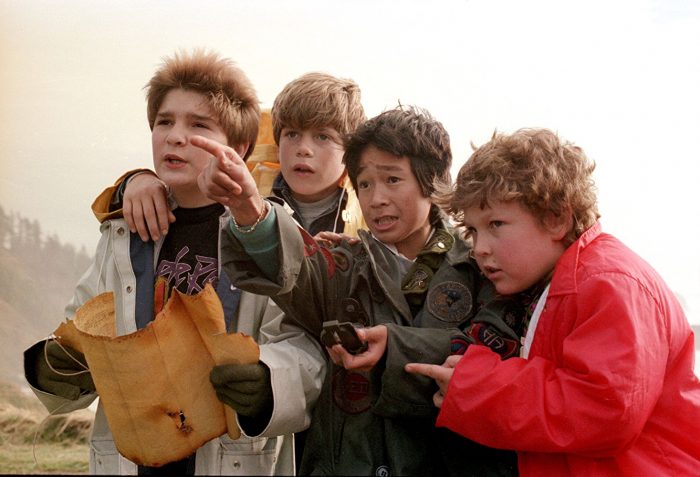Reviewed by Jeffrey Sanzel
In description, the plot is simple. A woman finds a bottle and releases a djinn (i.e., genie). The Djinn grants her three wishes; this is a straightforward story told hundreds of times over thousands of years. But suppose the woman is a narratologist, a scholar studying the literary theories of narrative? Suppose she is an academic who understands the interconnective nature of stories? Althea Binnie understands that “wish stories” are cautionary morality tales and “wishing is a hazardous art.” Her knowledge makes her hesitant to ask for her heart’s desire. So, the Djinn shares the story of his incarcerations. The result is Three Thousand Years of Longing, a thoughtful rumination layered in concepts. While rich in emotional complexity, the depth might not be as profound as it hopes.

Photo courtesy of MGM
Director George Miller has smartly co-adapted (with Augusta Gore) A.S. Byatt’s novella The Djinn in the Nightingale’s Eye. Drawing on a wealth of sources, Miller weaves elements nodding to One Thousand and One Nights, Canterbury Tales, The Decameron, Gilgamesh, and others into a meditative film that somehow still manages to maintain a raw intensity. Miller’s eclectic directing career has included the Mad Max series, The Witches of Eastwick, Lorenzo’s Oil, and Happy Feet. With Gore, he has infused the mostly serious screenplay with flashes of dry wit and a unique gallows humor.
Alithea leaves her London home and travels to a conference in Istanbul. Plagued by bizarre demonic hallucinations, the slightly damaged Alithea is withdrawn and almost taciturn. She purchases an innocuous glass bottle from the backroom of a small shop and, from this container, releases the Djinn. Immediately, she suspects the Djinn to be a trickster, the most common and traditional belief about these spirits.
As the Djinn relates his history, the pair open up to each other. His three personal stories, presented as offerings, create a symmetry with the three tendered wishes. The flashbacks are vividly created with the magic more in the telling and humanity than in the effects.
He begins by relating his relationship with the Queen of Sheba and how Solomon incarcerated him for the first time. The next story jumps ahead to another court centuries later. The last encounter was in the 1800s when he found a love he desired more than his freedom.
The framing device occurs in the Istanbul hotel room, where Alithea and the Djinn wrangle over conflicts and needs. Miller beautifully stylizes the merging of the past with the present and the present with fantasy. CGI is not overused, and whenever it is employed is effectively presented.
Tilda Swinton delicately assays the hyper-aware but sensitive and withdrawn Alithea with pain and hope. She yearns for more but expects nothing. Idris Elba’s melancholy Djinn matches her yearning but provides a grounding. The Djinn’s ability to adapt and grow earns Alithea’s trust, allowing her to help him escape being caught between realms that would leave him in oblivion. She learns that “we exist only if we are real to others.” Perfectly matched, these two actors embody the dust of humanity and the fire of a djinn.
The featured cast populates the flashbacks with appropriately heightened, if slightly generic, performances — woodcuts and illustrations brought to life. The exception is Burcu Gölgedar, as Zefir, the object of the Djinn’s 19th-century passion, gives a ferocious portrait of a woman with an unquenchable passion for knowledge that nearly drives her mad. In addition, Melissa Jaffer and Anne Charleston share a hilarious cameo as Alithea’s bigoted London neighbors.
Much of the film focuses on the importance of stories and the art and act of storytelling. This roots in the idea that stories began as a way to explain existence and the unknown. Gradually, mythos gave way to science, the latter being “what we know … so far.” Gods outlived their purpose and were reduced to metaphor. These are heady topics, and occasionally Miller struggles to clarify so many ideas. However, his perfectly cast stars make these exchanges compelling, if not completely accessible. Wrapped in the mythology is the larger question: Can we escape fate?
Perhaps the movie poses too many questions and fails to answer many of them. Its epic nature often conflicts with its desire to be an intimate romantic fantasy. But with the underlying passion in its lead performances, Three Thousand Years of Longing makes a strangely haunting and ultimately uplifting experience.
Rated R, the film is now playing in local theaters.


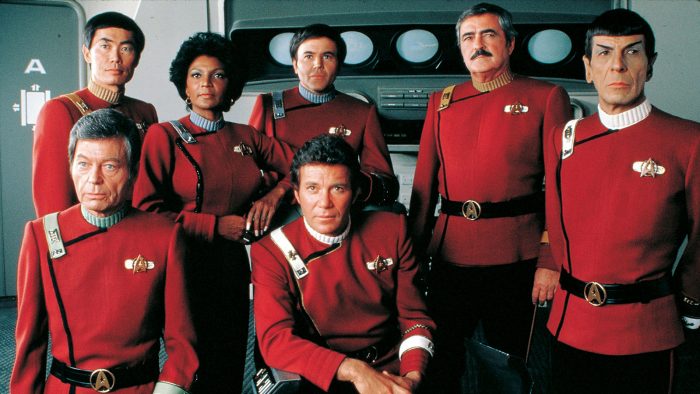
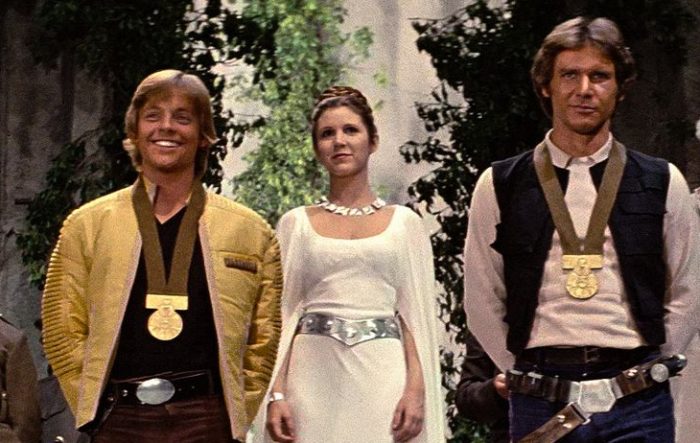
























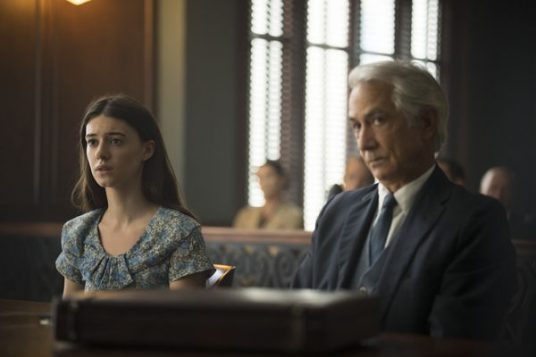


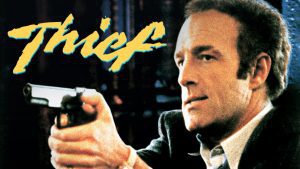 The contemporary American auteur Michael Mann’s bold artistic sensibility was already fully formed when he burst out of the gate with “Thief,” his debut feature. James Caan stars, in one of his most riveting performances, as a no-nonsense ex-con safecracker planning to leave the criminal world behind after one final diamond heist—but he discovers that escape is not as simple as he’d hoped. Finding hypnotic beauty in neon and rain-slick streets, sparks and steel, Thief effortlessly established the moody stylishness and tactile approach to action that would also define such later iconic entertainments from Mann as Miami Vice, Manhunter, and Heat. Mann used real thieves as technical advisors on the film and that Tangerine Dream soundtrack is a joy. Also starring Tuesday Weld and Willie Nelson.
The contemporary American auteur Michael Mann’s bold artistic sensibility was already fully formed when he burst out of the gate with “Thief,” his debut feature. James Caan stars, in one of his most riveting performances, as a no-nonsense ex-con safecracker planning to leave the criminal world behind after one final diamond heist—but he discovers that escape is not as simple as he’d hoped. Finding hypnotic beauty in neon and rain-slick streets, sparks and steel, Thief effortlessly established the moody stylishness and tactile approach to action that would also define such later iconic entertainments from Mann as Miami Vice, Manhunter, and Heat. Mann used real thieves as technical advisors on the film and that Tangerine Dream soundtrack is a joy. Also starring Tuesday Weld and Willie Nelson.